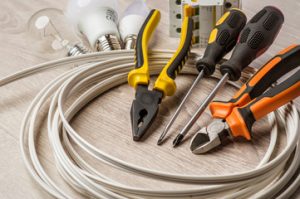Decks are hefty structures that must be well-built to withstand rain, snow, and other elements. This requires building codes and a permit. It also requires a strong foundation, and the right materials and techniques to make it durable.

For decks that are long, wide or span across uneven terrain, poured piers are the most durable option. This type of footing is poured directly into excavated holes and creates a monolithic structure that bonds with the soil, reducing the risk of differential settling over time. It’s also a better alternative to wooden posts, especially for large structures or those that will be built over difficult soil conditions. Visit https://jrcsi.com/ to learn more.
Poured piers can be made of concrete, brick or stone, but they are typically reinforced to increase their strength and tolerance for tensile strain. Masonry is a common method for constructing pier foundations, but it can be labor-intensive and inefficient. Concrete, on the other hand, offers superior compressive and tensile strength. For a quick and easy solution, look for pre-mixed concrete at home improvement centers or lumberyards.
When constructing a pier and beam foundation, it’s essential to have accurate layout measurements from the start. This will ensure that the piers are properly spaced and placed in the right locations to support your structure’s beams and floor joists. Mistakes here can cost you a lot of money and time later on.
To prepare for a concrete pier, you’ll need to dig a hole based on the frost line in your area. It’s important to use a powerful drill and to place a temporary casing over the hole to prevent the earth from collapsing. After the hole has been dug, steel rebar is added to increase its strength and help the pier resist heaving when the ground freezes and thaws.
Once the rebar has been added, high-strength concrete is poured into the hole. A quick and precise finish is needed to avoid air pockets and a weak support. When the concrete is cured, you’ll want to attach a zinc-galvanized post base to it.
While a pier and beam foundation is usually cheaper than a slab foundation, it’s not without drawbacks. This type of foundation is often more susceptible to pest infestations, which can cause structural damage and require costly repairs down the road. In addition, moisture problems are a major concern for pier foundations. This can lead to mold and mildew growth that can damage the foundation and ruin your deck.
Shelving
In many deck-building games players begin with a less powerful collection of cards and then, through the course of the game, curate their deck by discarding cards and adding new ones that make them more likely to win. The process usually takes place through a shared market of available cards that players can select from to add to their individual draw deck.
Deck-building mechanics are a great way to add complexity to tabletop card games without increasing the amount of time needed to play them. It’s surprising that videogames didn’t latch on to the concept sooner, since they already had a lot of complex systems in place to manage continuous increases in power, but I’m excited to see more and more roguelike games start to incorporate these types of mechanisms into their design.
Stairs
Stairs are a vital part of deck construction, and they need to be well-planned. Precise measurements are essential to ensure safety and comfort in the design of deck stairs. To begin, determine where the bottom of the stairs will land on the ground. To do this, extend a straight piece of lumber from the deck to the location of the stairs and use a level to ensure it’s flat. Then, measure the total rise from the deck to that point, aiming for a slope around 40 degrees. This measurement is important because it will influence how high the steps will need to be, which in turn will impact their usability and safety.
Next, consider the tread design and shape, as this will also play a role in the overall functionality of the staircase. Many professional builders choose to install a continuous tread rather than individual treads, as this offers greater stability and is more appealing in appearance. A wide tread is also preferable, as it offers a better grip on shoes and helps reduce the risk of falls on wet or icy surfaces.
Another important aspect of stair construction is compliance with local building codes, which can vary greatly depending on jurisdiction. It’s best to check online or with a local government official to be sure that you are in compliance before purchasing materials and beginning the project. These regulations often include requirements for the smallest tread depth, maximum riser height and handrail construction.
Once all of the structural elements are in place, it’s time to build the actual stairs. A popular choice is to use pressure-treated lumber, as this material is both affordable and durable. Wooden stairs should be sanded and sealed periodically to protect them from moisture damage, insect infestation and warping. Other alternatives to wood are composite and steel, which offer increased durability and low maintenance. Stairs constructed of these materials are less susceptible to rotting and require no staining or painting. They are also more resistant to sagging and twisting, which makes them a great alternative to wooden stairs in harsh climates.
Lighting
A well-lit deck is an ideal place to relax and enjoy the company of family and friends after dark. It also provides safety for those using the deck at night, especially if children are playing on it. Deck lighting can be used to create ambiance, as well as to mark out areas and highlight stairs or railings. It is also available in a variety of styles and colors to match your decor.
In-deck lights are a popular choice because they gently illuminate the deck surface without being too bright. They can be installed in a number of ways, including in the side of stairways and underneath the deck railing. Post mount lights are another option for deck lighting. They provide a combination of safety and style, as they can be placed on the sides of posts or in the middle of deck railings.
If you have a second-story deck, under-deck lighting is an excellent way to make the area below your deck feel like a real indoor-outdoor space. This type of lighting is built into your under-deck waterproofing system, so it is easy to install and requires no additional wiring or electrical work. It can be turned on and off with a simple switch, so you can control the brightness of the lights depending on your mood or the occasion.
When building a deck, it is important to remember that it affects the rest of your home. For example, you may have buried wires for outdoor outlets or lights, a gas line for a grill, or a sewer line in the exact spot where you plan to set a new deck ledger. Be sure to check these items before starting construction and mark them with caution tape.
Deck building projects create a lot of waste, including cardboard and paper that can be recycled at your local recycling center. Metal scraps, such as steel nails and screws, should be placed in a separate container for recycling. In addition, it is helpful to keep a bin for garbage during the construction process.
Before beginning a deck building project, it is essential to consider the safety of your family and crew. It is important to wear gloves and eye protection when handling power tools. Also, it is vital to wear a dust mask when mixing concrete or cutting wood to prevent inhaling dust particles. Lastly, it is necessary to use a power tool with a ground fault circuit interrupter (GFCI) to reduce the risk of electrocution.




